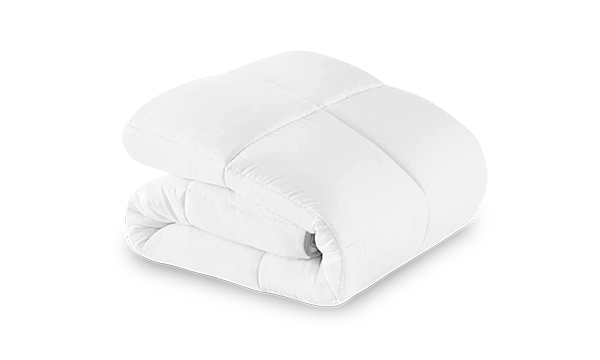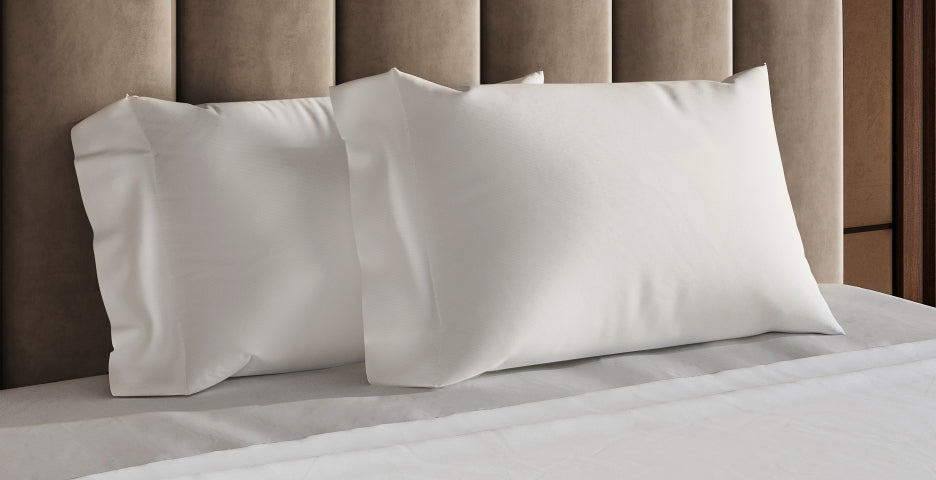Your duvet is your trusted companion for cozy nights. Keeping it clean is essential not only for hygiene but also for ensuring its longevity. However, washing a duvet isn’t as straightforward as tossing it into the washing machine. Different materials require different care. This comprehensive guide walks you through every step of washing your duvet, irrespective of its make and kind.
How to Wash a Duvet
Washing a duvet is an essential aspect of home maintenance that often gets overlooked. Ensuring that your duvet is clean not only promotes better sleep hygiene but also extends the lifespan of this bedding investment.
Check out Puffy mattress reviews from real customers and see how we compare with other brands.
However, a duvet is not just any piece of fabric; it can be a delicate ensemble of feathers, down, or specialized fibers. Knowing how to wash your duvet properly is crucial. From deciphering care labels to understanding the different materials, this guide will provide you with a roadmap to duvet cleaning success. Let's dive into the essentials of duvet laundering!
How to Wash a Duvet in a Washing Machine
Washing a duvet in a washing machine is the most common method. Here's a step-by-step guide:
- Check the Label: Before anything else, check the care label. It provides essential information on whether the duvet can be machine washed.
- Prep the Duvet: Remove any duvet cover and shake the duvet to get rid of loose dust.
- Use the Right Machine: Ensure that your washing machine is large enough to accommodate the duvet without cramming. A front-loading machine without an agitator is ideal.
- Add Detergent: Use a small amount of mild detergent. Consider a detergent specialized for the duvet's material.
- Select the Right Settings: Choose a delicate or gentle cycle with cold or lukewarm water.
- Drying: Tumble dry on low heat. Adding a few dryer balls or clean tennis balls can help fluff the duvet.
How Often to Wash a Duvet
It’s advisable to wash your duvet every three to six months. However, if you use a duvet cover, you might stretch this to once a year. The duvet cover itself should be washed more frequently - ideally every two to four weeks.
Bedding choices can be complex with various options available. For clarity on the differences, explore duvet vs comforter.
How to Wash a Down Duvet
Here are detailed steps involved in washing different types of down duvets.
How to Wash a Goose Down Duvet
Check Care Instructions: Not all down duvets are machine washable. Check the label for instructions.
- Use Mild Detergent: Use a small amount of a down-specific detergent.
- Gentle Cycle and Cold Water: Select a gentle cycle and use cold water to prevent the down from clumping.
- Rinse and Spin Several Times: Ensure that all detergent is rinsed out by running extra rinse cycles.
- Dry Thoroughly: Dry on a low-heat setting. It can take several hours. Make sure the duvet is completely dry to prevent mold.
How to Wash a Duck Down Duvet
Follow the same steps as for a goose-down duvet. The main difference between duck and goose down is the fill power and odor. Duck down might have a distinct odor when wet, so ensure thorough drying.
How to Wash a Feather Duvet
Washing a feather duvet is similar to a down duvet, but it’s even more essential to ensure it’s thoroughly dried as feathers tend to trap more moisture.
How to Wash a Duvet Comforter
- Check Instructions: As always, check the care label.
- Spot Clean Stains: Use a stain remover to treat any specific spots.
- Gentle Cycle with Cold Water: Wash on a gentle cycle using cold water and a mild detergent.
- Tumble Dry Low: Dry on low heat, adding dryer balls to keep the filling from clumping.
How to Wash a Linen Duvet
- Use Mild Detergent: Linen is delicate. Use a mild detergent and avoid bleach.
- Cold Water and Gentle Cycle: Opt for cold water and a gentle wash cycle.
- Air Dry or Tumble Dry Low: Linen is best air-dried, but you can also tumble dry on low heat.
How to Wash a Duvet Blanket
Follow the instructions for a duvet comforter, but remember that blankets often dry faster and can sometimes be line dried.
How to Wash a Silk Duvet
Silk is extremely delicate and it’s often best to dry clean. If you must wash it at home, do it by hand using cold water and a detergent meant for silk. Never wring out silk; instead, press the water out gently and dry flat on a clean towel.
How to Wash a Wool Duvet
Wool is known for its warmth and natural breathability, but it requires a gentle touch while washing.
- Check the Label: First, check if your wool duvet is machine washable. Some wool duvets require dry cleaning.
- Choose the Right Detergent: Use a mild detergent specifically designed for wool.
- Cold Water and Wool Cycle: If washing in a machine, select the wool cycle and use cold water. If your washing machine doesn’t have a wool cycle, opt for hand washing by gently agitating the water.
- Do Not Wring or Twist: Wool is very delicate when wet. Gently press the water out without wringing.
- Dry Flat: Lay the duvet flat on a clean towel in a well-ventilated area, away from direct sunlight.
How to Wash a Polyester Duvet
Polyester is durable and often easier to wash than natural fibers.
- Prep Your Duvet: Remove the duvet cover if it has one and check for specific washing instructions on the label.
- Use Mild Detergent: While polyester is robust, it’s still a good practice to use a mild detergent to maintain the fabric’s integrity.
- Warm Water and Regular Cycle: You can use warm water for polyester duvets. Select a regular or synthetic cycle on your washing machine.
- Tumble Dry: Polyester dries relatively quickly. Tumble dry on low heat. You can also hang it to dry, but avoid direct sunlight as it can cause the fabric to weaken.
Conclusion
Your duvet, whether down, feather, linen, or silk, deserves careful attention when it comes to washing. Proper cleaning ensures not just a clean sleeping environment but also extends the life and quality of your duvet.
Use our store locator to find the closest furniture or mattress store near you and feel the cloudlike comfort of our Puffy Mattress in person.
By taking into account the material of your duvet, you can ensure that it remains in prime condition. Whether your duvet is made of wool, polyester, silk, or another material, understanding the proper care required can significantly extend the life of your beloved bedding. Happy washing!

Sleep in cloudlike luxury with the Puffy Deluxe Comforter.
Enjoy breathable comfort in all seasons with this ultra-soft, quilted comforter:
- Oeko-Tex® Standard 100 certified.
- Hypoallergenic.
- Lifetime warranty.
- 101-night sleep trial.
- Free shipping and returns.













